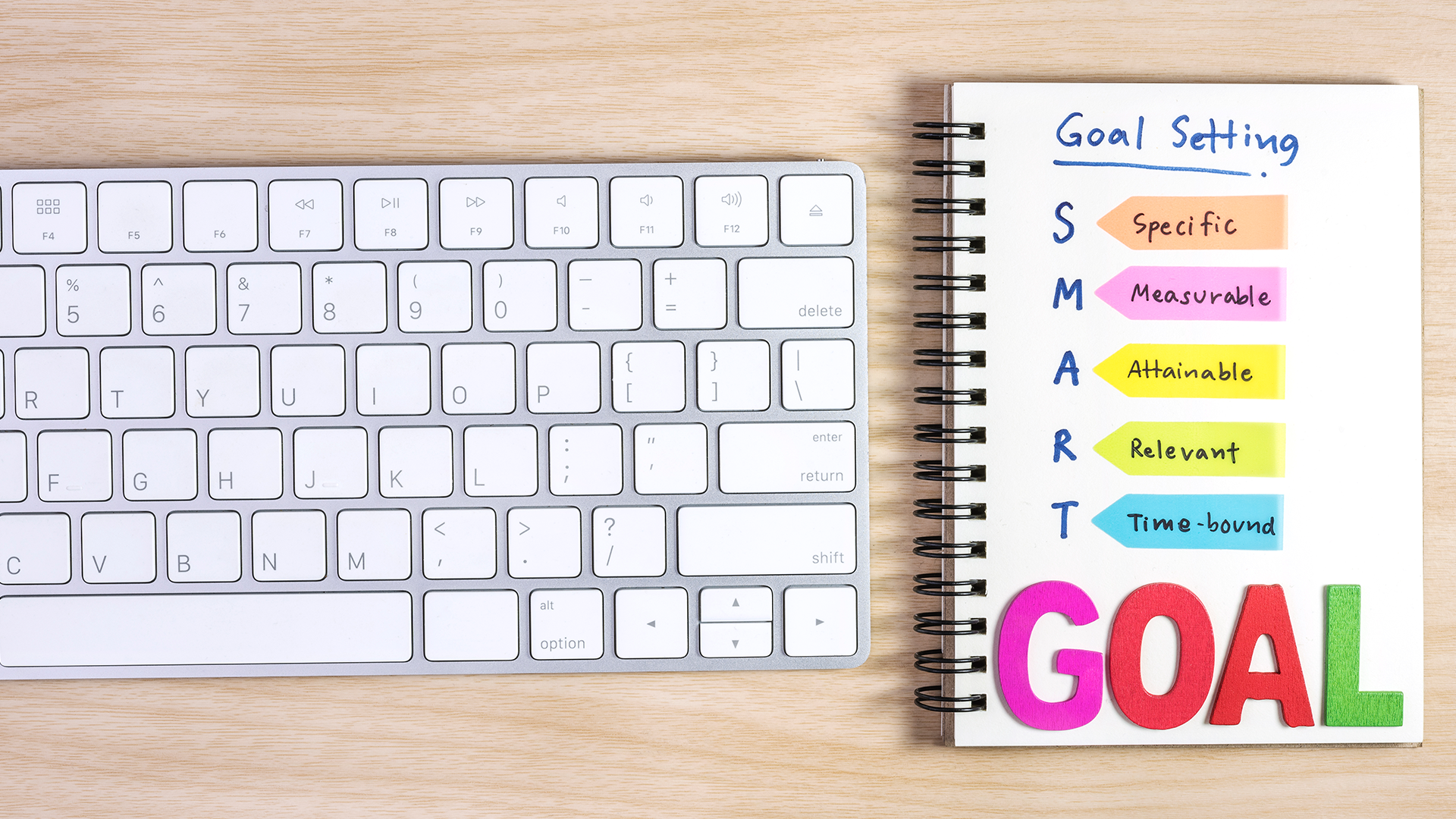
New Year’s Resolutions 2023: 5 Psychological Tricks to Achieve Them
The beginning of a new year is a great opportunity to create new habits that can help you grow mentally, intellectually, financially, socially, and physically. We all know that it’s easy to make them, but those pesky new year’s resolutions are difficult to keep and achieve. Statistics state that 46 % of people that make a new year’s resolution are successful in keeping it after 6 months. In comparison, of those people who have similar goals but don’t set a resolution, only 4% are still successful after 6 months. Thanks to these tricks you will be part of the more successful group. Let’s achieve your goals!
1. Make SMART Goals
The acronym SMART comes from an academic journal called Management Review, its 1981 edition. It stands for Specific, Measurable, Achievable, Relevant, and Time-Based. It’s easier to explain what it means with an example.
Specific: Instead of a simple “Lose weight” write down “During the next six months, I will lose 6 kg and therefore I’m going to avoid eating fast food.”
Measurable: Record your progress regularly in a journal. If you are in a process of slimming down write down your measurements or current weight. If you want to spend less time on your phone, get an app that will track your screen time.
Achievable: Dream big, but making significant changes fast isn’t rational. Be realistic.
Relevant: The goals that you set for yourself must be about something you truly care about. Don’t lose weight because you hate the way look or a stupid comment. Think about what is good for you in the long term and focus on that.
Time-Based: Decide when you want to start and finish, pick specific dates of when you start putting effort and when you should achieve your goal. Take your time and don’t forget to split your big goal into smaller ones to stay motivated.

2. Create and Measure your New Habits
Many goals that are easily measurable: you can track your weight; count the amount books you’ve read or the amount of money you saved. Others are much more difficult to measure like meditation before going to sleep. You will stick to your new habit with more ease if you combine it with an already existing one. If you’d like to journal regularly, do it while you have your usual glass of wine in the evening. How do you measure these goals? Make a chart, use the horizontal lines for your habits and the vertical ones for days of the month. This way you can cross each day when you managed to keep your habit. Make a new chart for every month and you’ll see your gradual improvement.
3. Make a Vision Board
If you imagine your ultimate goals in very specific details, you’ll feel a sudden rush of motivation and determination to turn this image in your head into a reality. Having a vision board will remind you why you’re doing what you’re doing and how far you want to go. This very real physical representation of your dreams can help you see how your everyday actions and habits affect your dreams. You can also attach the tracking chart for your habits or a picture of yourself when you were happy with your weight. Don’t forget about the importance of milestones, they’ll keep you on track and remind you to measure your achievements regularly.

4. Be Ready for Obstacles with WOOP method
We already introduced you to the SMART acronym and we have another one for you - WOOP. It’s a strategy that will help you stay positive and at the same time force you to look at the obstacles you must face. It stands for Wish, Outcome, Obstacle, and Plan.
Wish: What do I really want to accomplish?
Outcome: How will my life look like after I achieve my goal?
Obstacle: You know yourself the best. Remember what got you off the tracks. What else can stop you?
Plan: How can you avoid these obstacles? What will you do differently this time?
You can use the WOOP strategy whenever you find yourself face to face with a challenge or you just need an extra motivation boost.

5. Change your Mindset and Don’t Afraid to Fail
If you’re trying to change yourself for the better, you should accept the fact that you will fail, and you need to change your mindset. Only when we get off the road, we can see the strength of our determination and self-love. If you’re mad at yourself for eating a single piece of dessert, you can hardly change the way you see yourself. If you don’t change the way you talk to yourself, finding motivation after a failure will be extremely difficult. In case you do fail, be kind to yourself and use the following phrases:
Instead of “I messed up, I should give up,” try “I did it because I thought it was the right thing to do. I know now, I was wrong. What will I do next?
Instead of: “I am so hungry, it’s unbearable!” try “If I’m hungry, it means it’s working! Moderate hunger is necessary while trying to lose weight, I’ve been through worse.’’
Instead of: “I have a terrible headache. I am not working out today,” try “Workouts are not only about peak performances. What can I do to feel better in my body?’’

Bonus Tips
Change is a difficult process that is why we are giving you some extra tips:
- Reward yourself
- Stop living in the future and be present in the moment
- Surround yourself with the right kind of people
- Write down your thoughts and feelings
- Accept discomfort
- Praise yourself more
- Learn how to rest
The yearly ritual of making resolutions doesn’t have to leave you disappointed again. Sometimes the difference between success and failure is in choosing the right target and having a plan. Most importantly, don’t forget to be kind to yourself. Be flexible and celebrate every step in the right direction. It’s not about the destination you want to reach, but the process of growing along the way.


